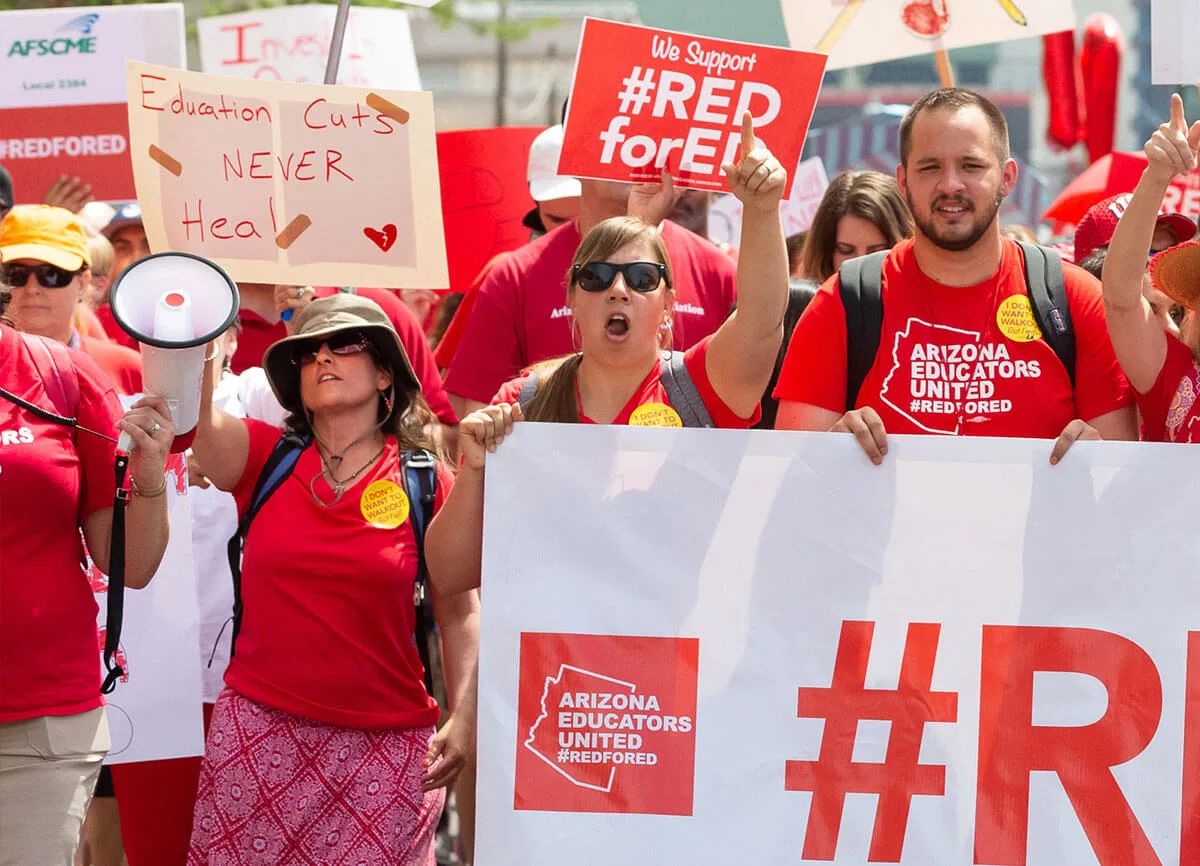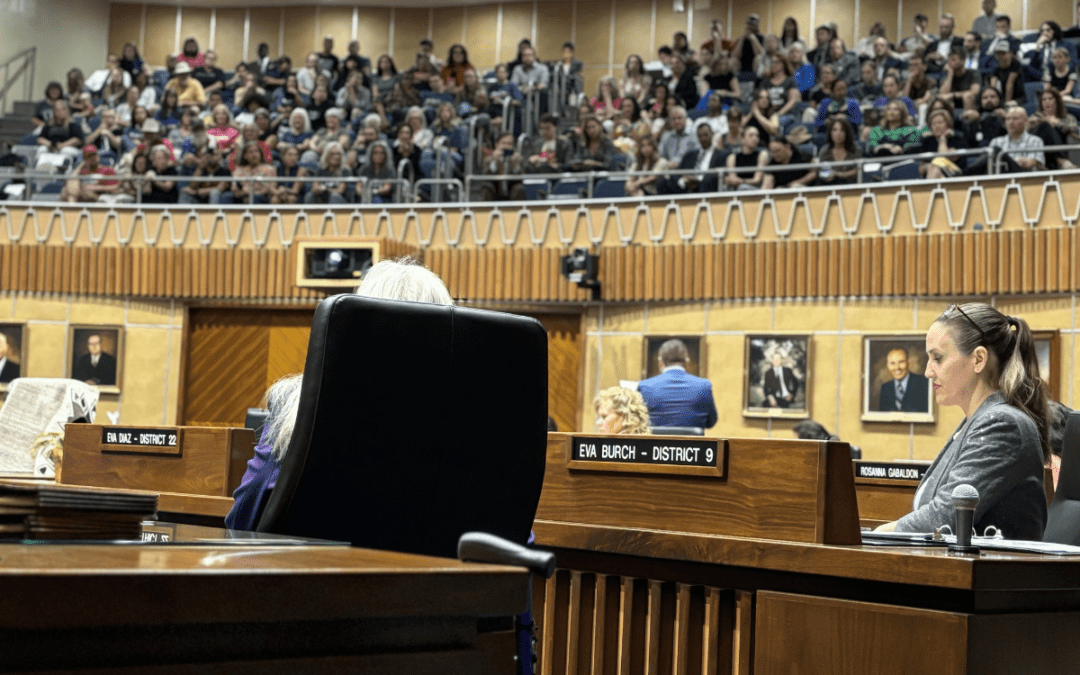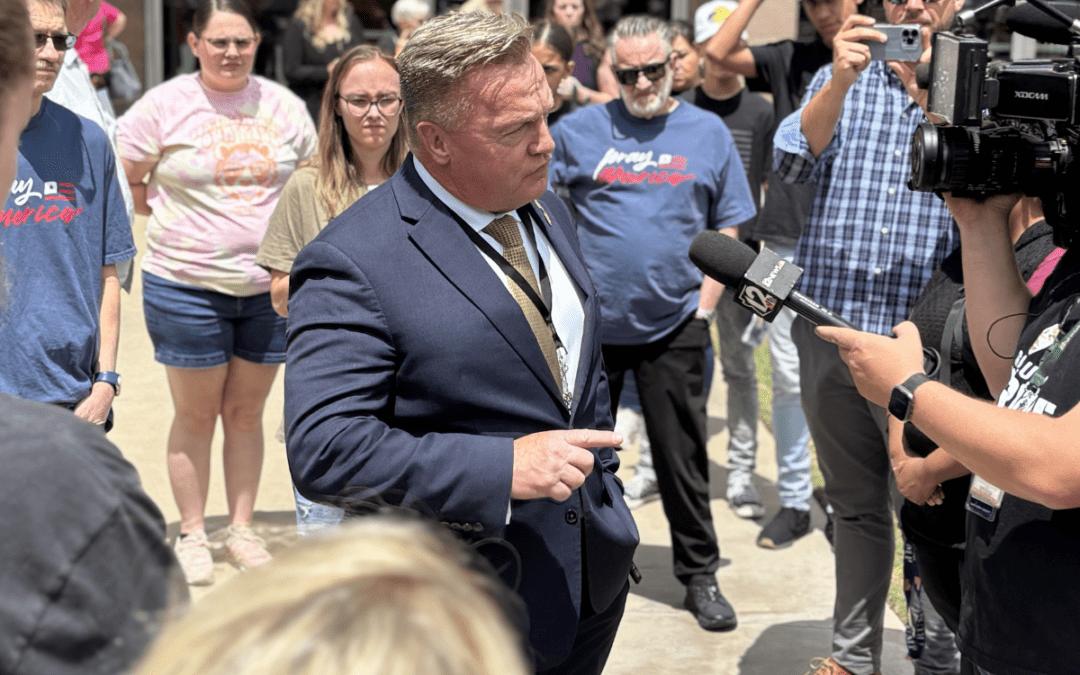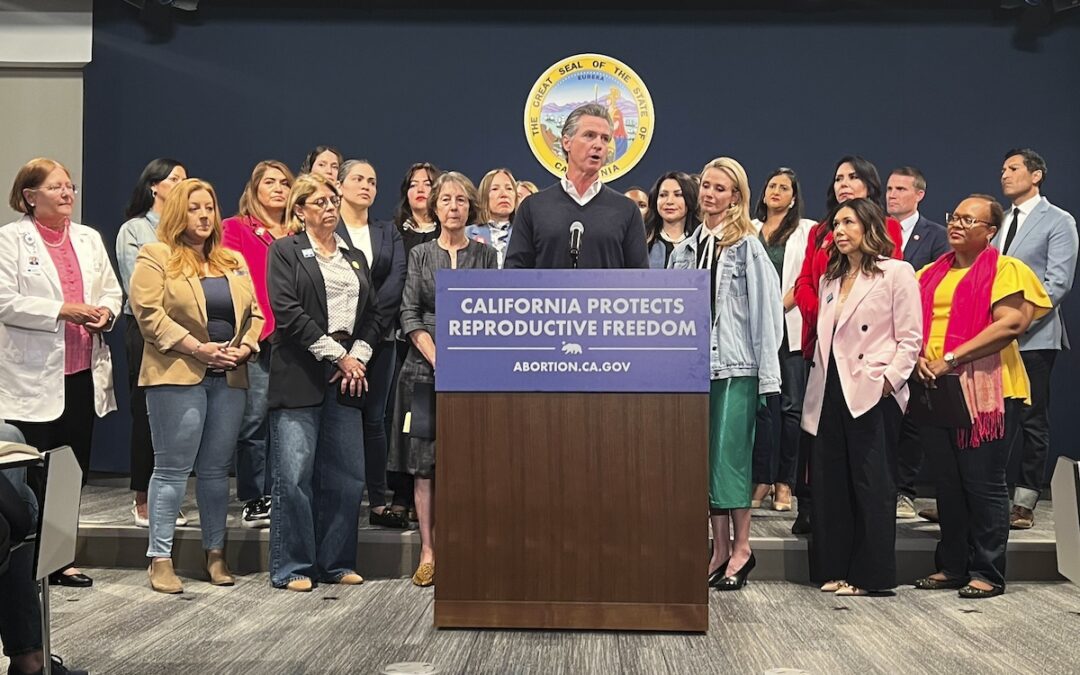
Gov. Ducey says he’s funded education, but teachers say his math doesn’t add up.
A group of education advocates including parents, teachers, and union leaders announced a new ballot initiative Monday that would add nearly $1 billion to the state’s annual education budget by adding a new tax on Arizona’s wealthiest residents.
Dubbed The Invest in Education Act, the initiative would tack on an additional income tax for the state’s highest earners. The proposed tax would bring a 3.5% surcharge on individuals earning $250,000 and households earning $500,000. The tax would also operate independently of the state’s tax brackets, a deviation from a similar initiative from 2018.
“The mechanism we’re using this time around is the income tax. We’re going to stay out of the tax brackets,” said Joe Thomas, president of the Arizona Education Association teacher’s union.
He added, “We’re listening to teachers; and we’re listening to parents and community members on what they do want – an education. And that’s what we did last time. So there is tremendous support for what we’ve put together.”
Maintaining momentum from 2018
The last initiative to increase school funding came in 2018 after 75,000 educators went on strike to protest decades of budget cuts by the state legislature. The strike ended when Gov. Doug Ducey offered to increase education funding to provide a 20% raise for teachers by 2020.
“The part that the Governor won’t remind people is, his plan originally was 2% by 2023,” said Thomas. “It was woefully inadequate, and that was about as big as his vision got for education back then.”
Thomas also said the issue with Ducey’s plan is that it leaves out a large portion of educators. The funding increase only provides money for teachers with classroom rosters, leaving out school employees who aren’t assigned a set group of students.
“We have a lot of positions that are like that,” Thomas said, giving the example of PE teachers, technology coaches, and advisors. “But the state didn’t provide money for them, and school districts had to water down everybody else’s raise to spread the money more evenly.”
Ducey’s announcement at odds with educators
Despite the criticism, Ducey touted his 20% by 2020 plan in his State of the State Address, announcing that it would be fulfilled by the start of the upcoming school year.
“We’ve pumped $4.5 billion in new investments into Arizona schools,” Ducey declared Monday, the same day the new education initiative was announced.
The Governor also issued a warning at the outset of his speech: “No new taxes. Not this session – not next session; not here in this chamber – not at the ballot box; not on my watch.”
“It was as if he was directing his statements right at educators and our community allies,” said Rebecca Garelli, a Phoenix teacher and lead organizer for Arizona Educators United (AEU). “I honestly could not believe that I was listening to an elected official tell his constituents that he will intentionally deny democracy.”
Learn from the past, plan for the future
Garelli has worked at the forefront of the educator’s movement since its inception, and led the cry for reform via ballot initiative when it became clear to educators like herself that Ducey’s plan wasn’t enough. Garelli worked with Thomas, fellow AEU leader Noah Karvelis, and other education advocates to craft an initiative and gather signatures. The group collected more than 270,000 signatures within a six-week time span.
But the initiative was challenged in court, and eventually tossed off the ballot by the Arizona Supreme Court. In a 5-2 ruling, the Court declared that the wording of the proposal was misleading. Garelli said that won’t happen again, as the proposal is currently going through a 30-day review period by legislative staff in order to avoid legal issues.
“The initiative,” Garelli said, “will provide the much needed sustainable – and voter protected – funding to increase educators’ salary, including classroom support staff salaries which will help address the 1,800 vacancies that currently exist.”
Thomas also has an optimistic outlook on the new initiative.
“The public understands this fight is about their students, and that our system is woefully underfunded; they’re ready to do something about it,” Thomas said. “I’m looking forward to 2020, and I’m looking forward to the work we’re going to do in Invest in Ed. And I am absolutely looking forward to how good things are going to look after we secure this funding.”
Politics

Democrats successfully force vote on repealing 1864 abortion ban, passes House
The Arizona legislature moved forward two bills Wednesday that would repeal the state’s 1864 abortion ban. A bill to repeal the ban has been...

State Official: 1864 abortion ban gives Arizona ‘black eye’
Arizona’s role at the forefront of the climate crisis, defending democratic elections, and protecting reproductive rights has caught the attention...
Local News

Arizona Sens. Anthony Kern, Jake Hoffman, indicted for fake election scheme
Eighteen individuals involved in a conspiracy to overturn Arizona’s election results in 2020 were indicted by a grand jury Wednesday and charged...

Gov. Gavin Newsom wants to let Arizona doctors provide abortions in California
California law generally allows abortion up to the point of fetal viability, which is around 24 weeks. SACRAMENTO, Calif. (AP) — Arizona doctors...




